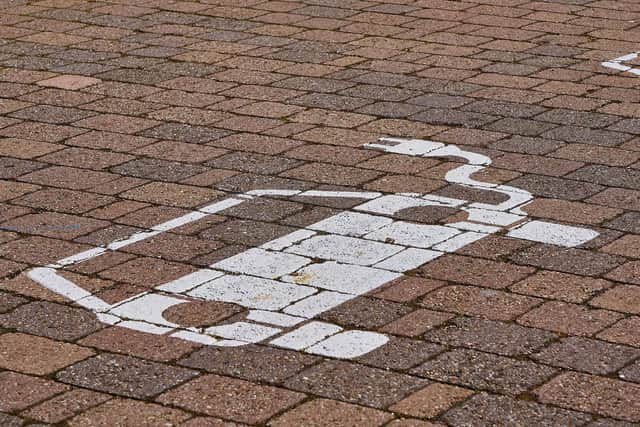Current EV charging point and renewable requirements for new builds ‘miserable’ says Arun opposition leader
and live on Freeview channel 276
Arun District Council’s opposition leader Dr James Walsh (LDem, Beach) wanted to know how many EV charging points would be fitted in the district in the coming years.
During a meeting of the policy and finance committee on Thursday (February 10), he pointed out that a plan to fit thousands of charging points in partnership with West Sussex County Council did not include any local figures or target dates.
Advertisement
Hide AdAdvertisement
Hide Ad“The county-wide electric vehicle charging point network doesn’t actually tell me how many are going to be put in in Arun,” he said.


“How many are going to be put in and by when?
“Because we are desperately needing them already, particularly for those residents who cannot have them fitted at their house for all sorts of reasons.”
He was scrutinizing the council’s new climate action and biodiversity plan which has been released two years after ADC announced a climate emergency.
It outlines 60 different projects to try and reduce the council’s carbon emissions, including the installation of EV chargers throughout the district and solar panels on council-owned buildings.


Advertisement
Hide AdAdvertisement
Hide AdDr Walsh asked if the plan could be taken further by asking developers to fit solar panels on all new buildings.
But he was told by council officers that this would go against government guidance and may prove a viability problem for some developers.
“I’m not aware of any authority in the country that asks for 100 per cent for solar panels or charging points,” said Karl Roberts, the council’s director of place.
“There’s always a requirement for 10 per cent of energy to be provided on site and we also seek a number of charging points.”
Advertisement
Hide AdAdvertisement
Hide AdMr Roberts said that any increases would have to be explored when reviewing the local plan which sets out requirements for developers.
But Dr Walsh said the current targets were ‘frankly miserable’.
Chair of the planning policy committee, councillor Ricky Bower (Con, East Preston), said that increasing requirements for renewable energy and charging points in the local plan could be dismissed if they strayed too far from government policy.
“Whilst I have sympathy with the view that councillor Walsh has expressed, I don’t think we can get there yet,” he said.
What are the current rules on EV charging points?
Advertisement
Hide AdAdvertisement
Hide AdLast year, the government announced rules which will require all new builds to have electric vehicle charging points.
The law is set to come into effect this year and would require all new homes with parking spaces to have at least one EV charging point.
If a residential building undergoes renovation and ends up with 10 or more parking spaces, each home will need to have access to electric vehicle charging if it also has a parking space.
The rules also apply to non-residential buildings, such as offices.
It is hoped the new rules will see around 145,000 charging points installed each year and, coupled with a ban on diesel vehicle sales from 2030, could cut carbon emissions.